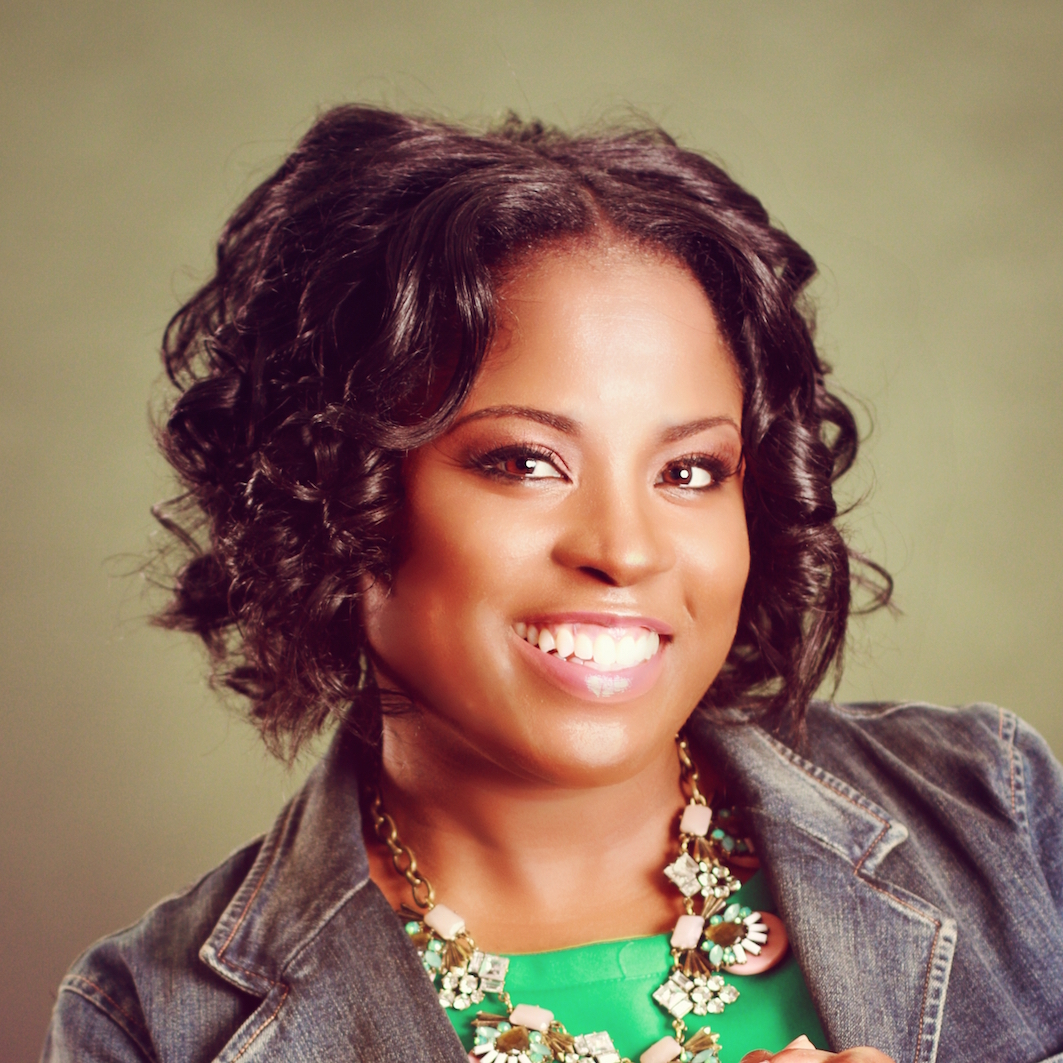 Tanya Bass, MS, CHES has 20 years of experience and is viewed as a subject matter expert in the field of health education, minority health, pregnancy prevention, HIV/STDs, reproductive health and sexual health. She is the lead instructor of Human Sexuality at North Carolina Central University in Durham, NC. Tanya is committed to reducing health disparities and is pursuing a doctorate to begin researching and addressing specific issues impacting sexual health and sexual behavior. She is a Certified Health Education Specialist (CHES) and enjoys planning and attending professional development events. She is former co-chair (2014) and Volunteer Coordinator (2015) for the National Sex Ed Conference. Tanya is is a member of the following organizations: the Society of Public Health Education (SOPHE), Eta Sigma Gamma, the North Carolina Society for Public Health Education (NCSOPHE), the American Association of Sexuality Educators, Counselors, and Therapists (AASECT), the Association of Black Sexologists and Clinicians (ABSC), and the Women of Color Sexual Health Network (WOCSHN).
Tanya Bass, MS, CHES has 20 years of experience and is viewed as a subject matter expert in the field of health education, minority health, pregnancy prevention, HIV/STDs, reproductive health and sexual health. She is the lead instructor of Human Sexuality at North Carolina Central University in Durham, NC. Tanya is committed to reducing health disparities and is pursuing a doctorate to begin researching and addressing specific issues impacting sexual health and sexual behavior. She is a Certified Health Education Specialist (CHES) and enjoys planning and attending professional development events. She is former co-chair (2014) and Volunteer Coordinator (2015) for the National Sex Ed Conference. Tanya is is a member of the following organizations: the Society of Public Health Education (SOPHE), Eta Sigma Gamma, the North Carolina Society for Public Health Education (NCSOPHE), the American Association of Sexuality Educators, Counselors, and Therapists (AASECT), the Association of Black Sexologists and Clinicians (ABSC), and the Women of Color Sexual Health Network (WOCSHN).
Read our interview with Tanya on being a Southern Sexologist, working with Black sororities, and speaking at about sexuality:
Thank you, Tanya for taking time out to talk with me. Congratulations on being a part of the 2016 planning team for the National Sex Ed Conference! That’s super exciting! I’m sure you have many other interesting projects going on with WoCSHN and Southern Sexologist so let’s get started!
So just for a framework, could you tell us what got you started in your career of sex education?
My career started in 1995 at the former American Social Health Association CDCs National STD Hotline in Durham, NC. I worked on the hotline for almost a year before beginning work at a local health department. Later, I fulfilled a dream of working as a disease intervention specialist but became frustrated with the disparities in HIV/AIDS and syphilis infections—I wanted to do MORE. I began working the NC Office of Minority Health in 1998 as an HIV Liaison and Consultant for minority community based organizations and honestly, since that time the road has ebbed and flowed since then. It has been a great career path. It was there, I realized my desire to train, educate and facilitate workshops and teach when possible.
Your brand, Southern Sexologist, what inspired you to start using that?
Several of my colleagues were doing some great work in the state and nationally. I had been serving as a consultant on several projects and after attending a branding workshop decided on the Southern Sexologist moniker. It was unique, flowed well and in many ways represented my style though I am a New York transplant to NC. I have been here long enough to call NC my home. My website is www.tanyambass.com if people want to learn more about my work.
Do you notice any differences in focus areas, education curricula or anything from the work you do in the south compared to the work some of your colleagues do in the North?
While the South, NC in particular, may have an unsavory history in health travesties, reproductive injustice, discrimination and stigma, there is currently some positive and effective programs and activities here. As I have met more sexuality educators and colleagues, I find that we tend to have more in common than we differ. I think there are more opportunities for teaching and gaining professional development as it relates to sex across the lifespan in other areas. I hope that I will be a catalyst to change that here in NC.
Currently I am working with 14 other NC sexual health professionals to plan the 2016 North Carolina Sexual Health Conference scheduled for August 25-26, 2016 in Cary, NC. The conference theme is “Connect. Celebrate. Create. Collaborate. Commit.” The workshops will provide content that will explore the various intersections of the five circles of sexuality. The goal of this conference is to connect agencies or individuals and create opportunities to share information, efforts, and best practices around sexual health across the lifespan. We will celebrate the work of local and national sexual health professionals and encourage them to collaborate by bridging various disciplines of education, advocacy, and clinical care. We hope everyone will leave the conference with a renewed commitment to implement and explore inclusive strategies for change. We are looking for speakers, co-sponsors, exhibitors and donors. If anyone is interested, please email us at ncsexcon@gmail.com
Was there ever a time you felt discouraged in your work and if so how did you overcome that?
Many times, one as frequent as last month! I really get frustrated and discouraged when agencies work in silos but I find that I overcome discouragement by reaching out to others in the field. I am committed to and enjoy connecting professionals and providing opportunities for collaboration. I become energized and invigorated when my peers and I meet formally or informally. Additionally, I have a strong faith and I believe that it will be okay in the end, if it is not okay – then it’s not the end!
So you’ve got a couple of projects coming up! I see in April you’ll be speaking at a Health Seminar at North Carolina Central University for Women’s Health Awareness Day! Could you give us a little peek into what you’ll be talking about!?
As I mentioned I love collaborating and working with my peers. This event was held last year and while it was successful, I expressed my disappointment in the lack of sexual health information (beyond HIV/STD prevention education and testing services). By being transparent with one of the conference coordinators offered me the platform to create a session that will now include four other sexuality educators. We will speak on a panel that will be representative of four generations of women to discuss sexuality. We hope the participants will learn and discuss the impact shame, stigma, trauma and sexualization have on female sexuality and sexual health; the various challenges and strategies to manage sexual “dysfunction” and changes in the female body due to aging and past/current trauma; and identify spiritually based principles that are pleasure centered. We hope to have a candid discussion that is centered around the circles of sexuality.
Is it open for registration or is it just for campus students?
The conference is open to the general public and is FREE—this NOT just for students. There will also be FREE mammogram and other health services in addition to the workshops. It is co-sponsored by the Department of Public Health Education at North Carolina Central University, where I teach human sexuality. Dr. Joan Packenham, Office of Human Research Compliance Director chairs the planning and steering committee. This community event is FREE to the women of Durham, North Carolina and surrounding counties. It will provide health awareness, education, information, resources, and on-site health screenings. The event has the following objectives:
- Inform and empower women to take responsibility for their health
- Encourage women to understand their health options
- Identify services, resources, and products that best help them prevent poor health, which reduces the number of health issues and creates health equity
Women’s Health Awareness Day 2016 is sponsored by the National Institute of Environmental Health Sciences and co-sponsored by the Durham Alumnae Chapter of Delta Sigma Theta Sorority, Inc., and the Department of Public Health Education, North Carolina Central University. Read more at: http://www.niehs.nih.gov/about/visiting/events/womens-health/index.cfm
I also see you’ll be a speaker on behalf of WoCSHN (Women of Color Sexual Health Network) at the 37th Annual Minority Health Conference! That’s great! As a Black Sexologist, does speaking at a niche sex education conference change your approach in speaking topics?
This is one of my favorite conferences and it is typically well attended. I have been a poster presenter but have never facilitated a workshop. I am so excited to co facilitate this workshop with Park Cannon. Park is now the youngest queer woman of color to take office in the Georgia State House! The conference has always focused on issues related to minority health but has certainly included sexual health topics such as HIV/AIDS, sexual assault, and teen pregnancy prevention. I do not think my approach will change but we will be more focused on the theme which is: “The Role of Public Health in Social Justice”. Our goal is to provide the show the role of public health in social justice in respect to sexual health and reproductive justice.
At this conference, could you tell us your topic of discussion and why you decided on it?
The session is titled: Solidarity in Perspective: Reproductive Health through the Eyes of Women of Color
Park and I are very excited. This presentation will address reproductive justice disparities that are specific to the Southern US states. By introducing “The Crooked Room Perspective”, the presenters will address issues that women of color face as they are forced to legitimize themselves, label inequalities, and lead movements that limit reproductive autonomy in professional and political settings. The presenters will share the history for the creation and work of the Women of Color Sexual Health Network (WoCSHN). Through the case study of Kenlissia Jones and House Resolution 746, the speakers will detail the impact of racism and discrimination on people of color seeking preconception health education, family planning, social assistance, and reproductive health care. As societal stigmas compound, contraception use patterns decrease in LGBTQ individuals, and a larger narrative of limited choice is apparent.
Well thank you Tanya for taking the time out to talk to us! We wish you the best in your upcoming conferences and planning one of your own!



